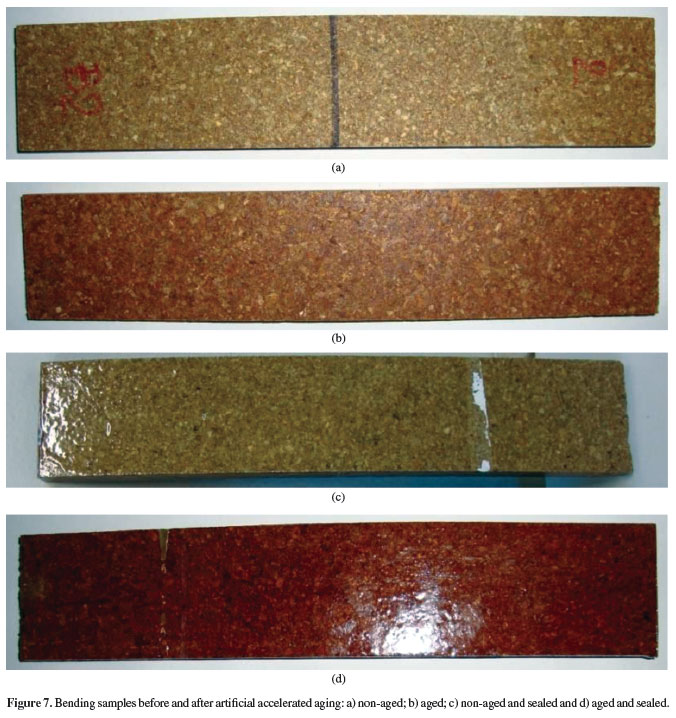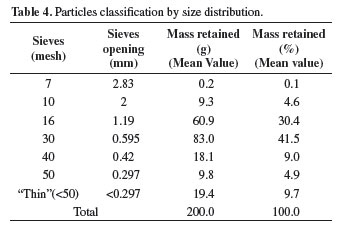Tests simulating exposure to severe weather conditions have been relevant in seeking new applications for particleboard. This study aimed to produce particleboards with residues of CCB (chromium-copper-boron oxides) impregnated Pinus sp. and castor oil-based polyurethane resin, and to evaluate their performance before and after artificial accelerated aging. Panels were produced with different particle mass, resin content and pressing time, resulting eight treatments. Particles moisture and size distribution were determined, beyond panel physical and mechanical properties, according to NBR14810-3: 2006. After characterization, treatments B and G (small adhesive consumption and better mechanical performance, respectively) were chosen to artificial aging tests. Statistical results analysis showed best performances were achieved for waterproof aged samples, of both B and G treatments. As example, in treatment B, MOR and MOE values were 23 MPa and 2,297 MPa, samples before exposure; 26 MPa and 3,185 MPa, 32 MPa and 3,982 MPa for samples after exposure (non-sealed and sealed), respectively.
particleboard; impregnated wood residues; mechanical properties; accelerated artificial aging















